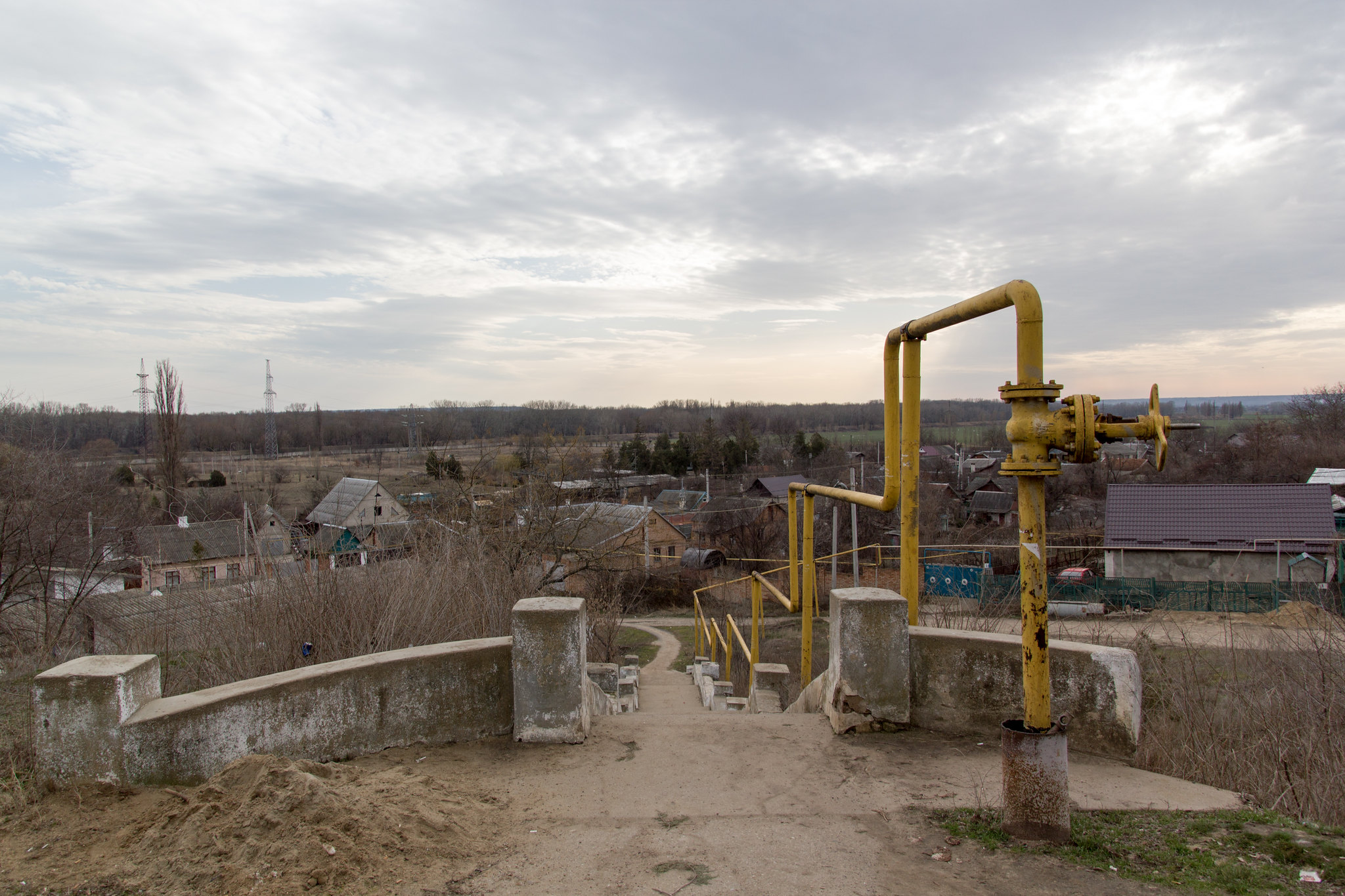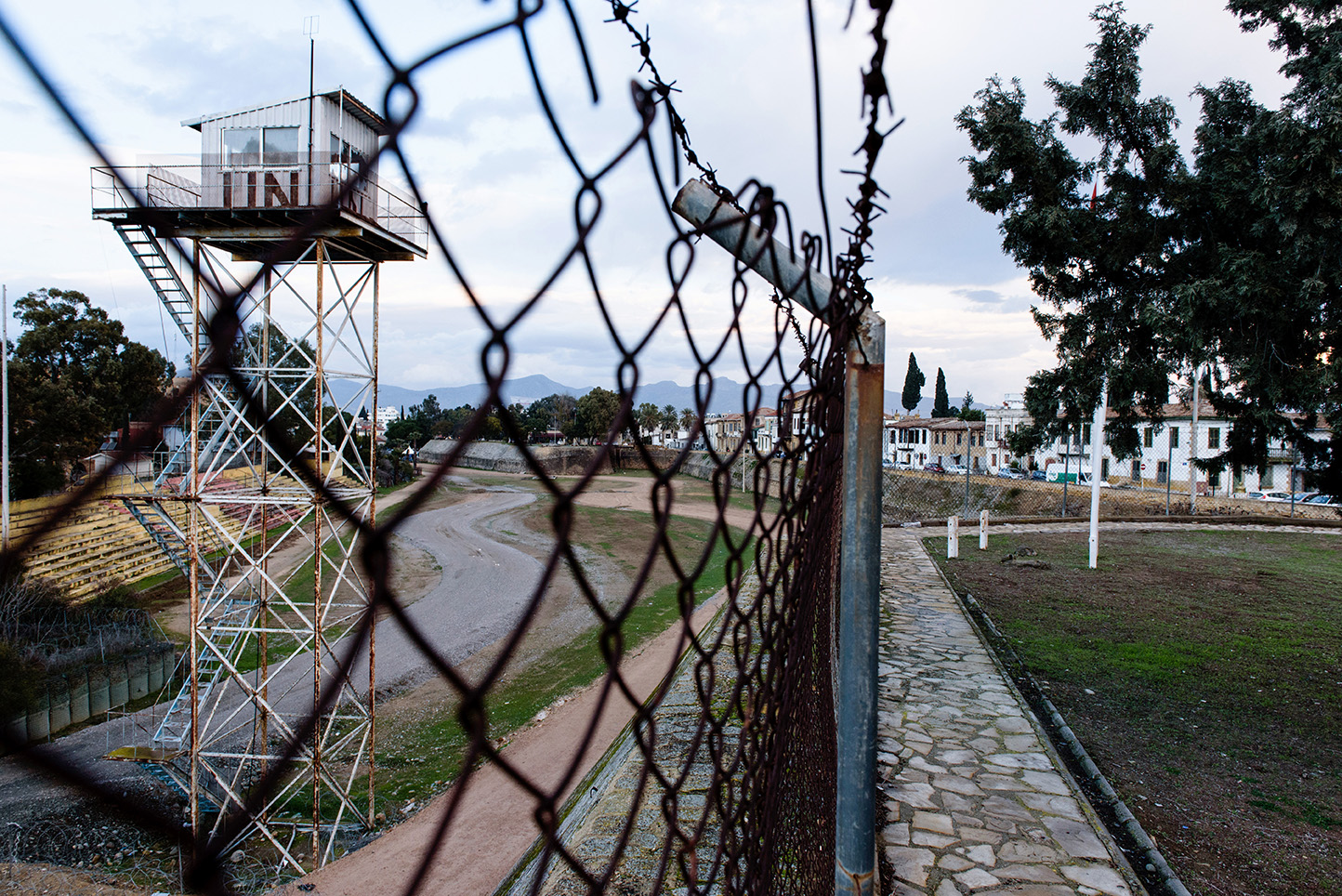Transnistria: when buying time, make sure to use it wisely
Russia’s gas subsidy – a key ingredient enabling Transnistria’s political economy – may remain in place for a couple more years, but its existence is based on increasingly shaky grounds. Chișinău is ensuring its own energy security, but long term stability in Moldova requires solid arrangements also for Tiraspol

Transnistria-when-buying-time-make-sure-to-use-it-wisely
Gas pipe just a few hundred meters from central square in Tiraspol- Photo by G. Comai
According to Moldova’s minister of Energy , a deal on ensuring continued access by Gazprom to Moldova’s gas market after Ukraine’s decision to stop transit through its territory may be within reach. Rather than directly from Russia, gas would be imported through Turkey, Bulgaria and Romania, briefly go through Ukraine, and eventually reach Moldova, where it will likely be transferred in its entirety to Tiraspoltransgaz, Transnistria’s gas distributor, which in June 2024 officially registered and opened accounts in Chișinău .
Considering that over half of Tiraspol’s budget and a sizeable part of its economy depend directly or indirectly on the Russia-sponsored gas subsidy enabled by this scheme, finalising a deal is of the essence for authorities in Transnistria. It is also in the interest of Moldova’s government, which would much rather remain focused on its agenda of integration with the EU instead of being forced into a crisis-management situation.
The fact that all sides prefer the status quo to alternatives, however, does not make the status quo either sustainable or desirable in the long term. The closure of gas pipelines through Ukraine expected at the end of 2024 is only the first among a series of deadlines creating new hurdles making the sustained maintenance of current arrangements increasingly unlikely. Just a few months later, in September 2026 , the 5-years contract stipulated between Moldovagaz and Gazprom in 2021 will come to an end. Finally, the European Union currently has a target to phase out all Russian fossil fuel supplies by 2027 . Looking at a map makes clear that gas can reach Moldova either through Ukraine or EU countries: if both supply routes will effectively be closed, it is unclear how Gazprom would be able to ensure continued provision of supplies to Transnistria.
To be clear, the problem is not ensuring the provision of gas per se: as Moldova fully enters the European gas and energy markets, companies such as Tiraspoltransgaz may access the European market at the same conditions as other companies based in Moldova. There would however be a fundamental difference: as long as Transnistria gets gas from Gazprom, it effectively does not need to pay for it; if it buys it at market rates, Tiraspol would need to actually pay for the gas it uses, which of course makes all the difference. Prices have been fluctuating substantially, but in recent years this would have amounted to about half a billion USD per year, or close to half of the GDP recorded by de facto authorities in Transnistria and more than their total budget expenditure.
Energy inter-dependence due to end
By themselves, none of these hurdles is insurmountable, but each of them makes clearer how prevalent arrangements are based on shaky grounds. Aware of this, Chișinău is taking measures to insulate itself from the direct consequences on its energy security of a possible end to imports of Russian gas to Moldova, which implies putting an end to the energy interdependence that long existed between Chișinău and Tiraspol. Indeed, 80 per cent of electricity consumed by Chișinău is produced by the Cuciurgan power station (Moldavskaya GRES), located in Transnistria, owned by Russia’s state-owned energy company RAO EES, and operating with Gazprom’s gas. Due to the disposition of high voltage lines , even electricity imported from Romania at present needs to pass through that same powerplant located in Transnistria before reaching Chișinău. By building new high voltage lines connecting the grid to Romania in multiple locations, Chișinău can procure its electricity from the West, ensuring uninterrupted supplies. Additional measures include the development of domestic renewable energy production capacity, energy storage facilities funded by USAID , and the introduction of smart meters encouraging reduced consumption at peak times (an initiative funded by the Italian government and implemented through UNDP ).
The first line enabling direct electricity imports from Romania (Vulcănești-Chișinău) without crossing the Dniester is expected to be functional already by 2025. Other lines to ensure redundancy should be completed by 2028-2029. At present, importing electricity from Romania would be more expensive, but with this new infrastructure in place Moscow simply won’t be in the position to engineer new disruptions to Moldova’s energy security.
Russia’s limited leverage
Until recently, Russia had many ways to exercise pressure on authorities in Chișinău: Russia was the main destination for Moldova’s economic migrants, the main export destination for important and politically sensitive sectors of Moldova’s economy such as wine and agricultural products, the sole source of all of Moldova’s gas imports, and indirectly of almost all of the electricity consumed in the country. All of these elements of dependence could be used to ensure that Moscow’s voice would be heard in Chișinău. Now, most of them are either diminished or completely gone, including the most direct of them all: gas and energy dependence. Thanks to the significant measures taken in recent years and support from European partners, Chișinău can now feel much safer from the threat of Russian blackmailing as well as more self-confident in its dealings with Tiraspol, which cannot really count any more on its long time patron beyond the financial support it is currently receiving chiefly through its gas subsidy and through direct payment of pensions to local residents.
Moldova’s president Maia Sandu, along with the current government, are intent on reinforcing these developments by accelerating the process of European integration and giving it more explicit political backing through a referendum planned for 20 October 2024 , on the same day as the presidential elections.
With traditional vectors of influence becoming increasingly irrelevant, meddling in Moldova’s domestic politics may effectively be Moscow’s main bet for enabling renewed influence in Chișinău. In fact, a significant threat for Moldova comes from domestic political forces which benefit from Russian support, in particular those associated with Ilan Șor (a fugitive politician condemned to 15 years of prison for massive financial crimes, now based in Russia), and including the current pro-Moscow leadership of Gagauzia. With both a referendum and presidential elections scheduled for October, concerns about Russian interference are understandably a key priority for a pro-European government intent on strengthening its political position. Sharing this concern, Brussels launched the European Union Partnership Mission in Moldova (EUPM Moldova) in May 2023 in order to strengthen Moldova’s resilience against hybrid threats, including cyber security and foreign information manipulation and interference (FIMI). After a slow start, the mission is currently actively supporting different Moldovan institutions in implementing FIMI policies, often starting from zero and with limited resources within the ministries.
“There is still a couple of years…”
In this context, dealing with Transnistria is clearly not a priority for authorities in Chișinău, also because reaching a comprehensive agreement with Transnistria is not a precondition for EU integration, and, according to opinion polls , dealing with Transnistria is not considered a priority issue by the public at large.
In reference to the availability of Russian gas to Transnistria, Chișinău sees its role as one of a facilitator: it won’t obstruct delivery of gas, and it will make sure that volumes of gas needed by Transnistria will effectively be available through the Balkan route; understandably, it does not however intend to take any economic liabilities, either for the gas or its transit, leaving these issues to understandings between the provider (Gazprom) and Transnistria. “We are making preparations for the winter, based on scenarios, [they] should make their own plans for the winter”, as an official of Moldova’s Ministry of Energy put it in a recent interview . Victor Parlicov, Moldova’s minister of Energy, also made clear that Tiraspol should be making preparations: “until internal gas prices in the Transnistrian region do not reach the minimal market price, the Transnistrian region will continue to depend on this conjuncture, which cannot be eternal. […] And serious difficulties may arise. This is why it’s necessary to make preparations. There are still a couple of years, and I think that this time needs to be used wisely.”
“…and this time needs to be used wisely”
Temporary solutions may make it possible to keep current arrangements in place for a while longer, but when buying time, it is indeed important to make sure to use it wisely. This is true not only for authorities in Transnistria, but for all involved: a breakdown of the increasingly fragile subsidy schemes supporting Transnistria’s political economy would cause an immediate crisis in the region, which Chișinău won’t be in the position to simply ignore. The European Union would also be expected to act decisively.
So what should each of the key actors do? In many ways, Tiraspol has been taking a “wait and see” position, as different outcomes of Russia’s invasion of Ukraine may change substantially the context in which it operates. War, however, could last for a long time, and under most plausible scenarios Transnistria’s current position would anyway become untenable. No matter how difficult the process, local political and economic elites should acknowledge more clearly the need for reforms and dialogue, understanding that in spite of the loud rhetoric, Russia’s support is effectively feeble. Similarly to how it abandoned its commitments to Karabakh Armenians last year blaming Yerevan’s leadership for the dramatic consequences of its own inaction, Moscow could abandon Tiraspol blaming the West. In this context, Tiraspol should not place all its bets on continued assistance and support from Moscow. In Transnistria, part of the political élite overlaps with the economic élite; current and future business opportunities with the EU could be an incentive, if not a leverage, to overcome the present situation.
Chișinău is right in insisting that Tiraspol should engage in contingency planning, but it should also make more explicit its availability and support in finding viable solutions for an inevitably difficult transition. Official rhetoric should highlight more openly its interest in the welfare of Transnistria’s residents (who mostly already have Moldovan citizenship, or would anyway be entitled to it), contrasting the negative discourse that has been actively promoted by local authorities and media in Tiraspol: aware of the tense context, active public outreach efforts should be made to make clear how Chișinău has no interest in putting Transnistria “under blockade” or to make life for its residents more difficult.
Finally, while supporting Chișinău in contrasting Russian manipulation and interference, the European Union and its member states should highlight the importance of finding a solution that takes into consideration the welfare of Transnistria’s residents, without assuming that they will inevitably be vectors of Russian influence threatening Moldova’s journey towards the EU. Brussels’ traditional focus on the integration process and market mechanisms is warranted, but it should be integrated by measures that account for social and economic local dynamics, for instance offering comprehensive support to limit the negative impact of what will inevitably be a difficult and possibly tense transition period for the local population.
This article has been written within the project “Analysis of crisis scenarios in Moldova and Transnistria”, implemented in cooperation with the Agency for Peacebuilding .
This project is realized with the support of the Unit for Analysis, Policy Planning, Statistics and Historical Documentation – Directorate General for Public and Cultural Diplomacy of the Italian Ministry of Foreign Affairs and International Cooperation, in accordance with Article 23 ‒ bis of the Decree of the President of the Italian Republic 18/1967.
The views expressed in this report are solely those of the authors and do not necessarily reflect the views of the Ministry of Foreign Affairs and International Cooperation.









